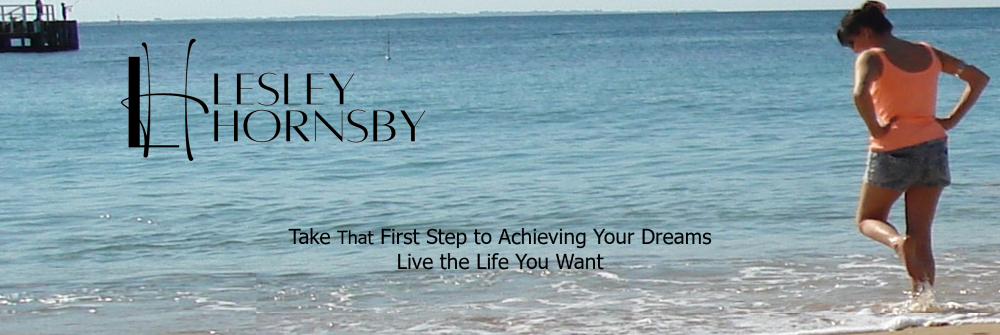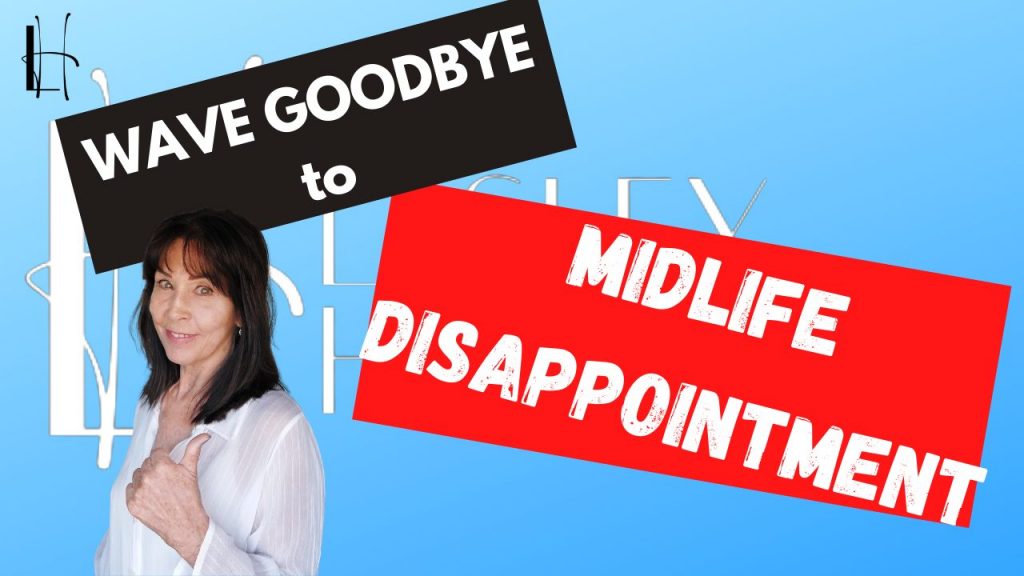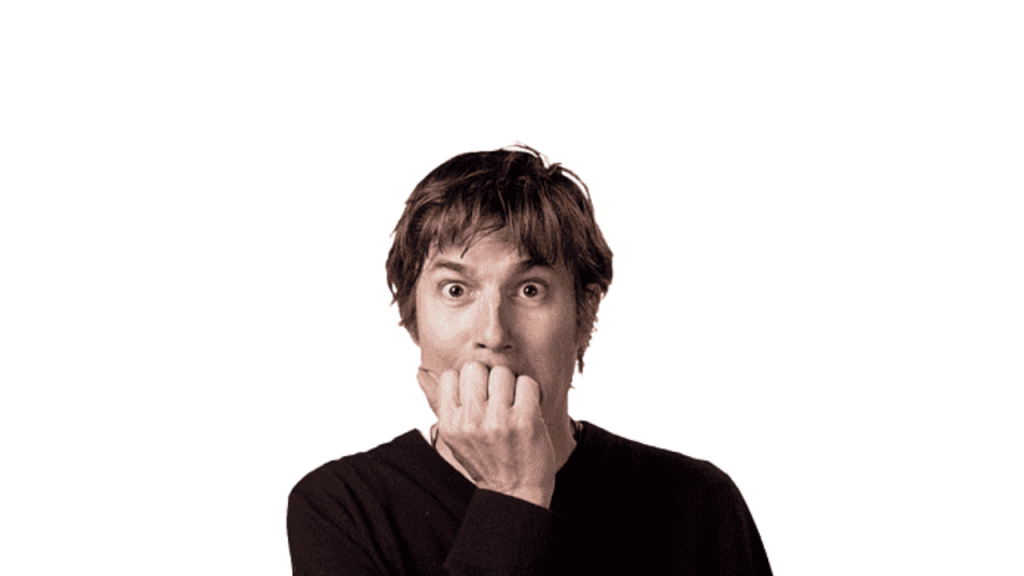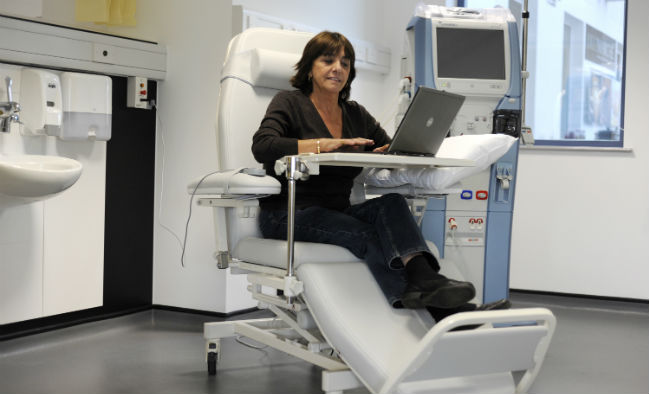
Happiness Quiz



Ladies, have you reached a certain age? Do you wake each morning feeling disappointed by your life? Do things just feel off? It could be that midlife disappointment has come calling. Watch THIS VIDEO


If you’ve somehow found yourself here on this page, chances are you’ve decided you need to start doing something about your situation. Lockdown is getting you down and money’s tight. Worse still, either the axe fell early and you’ve been put out of a job or you’re sure sooner rather than later, you’ll be facing redundancy. A fact that’s daunting in itself, but if you’re also no longer on the green side of 50, the whole picture starts to look pretty grim. Of course that doesn’t stop the bills coming in or that you have others relying on you. You need a plan, some kind of lifeline so you can regain control of your life and livelihood.
So where to start? Well maybe you’ve already begun, as I did, and started researching your options online, looking for a way to achieve financial independence. What became very clear to me early on was the most practical choice particularly given the restrictions of Covid 19, was to start some kind of online business.
More and more people are coming to this conclusion. For one thing, it’s a way to still work a day job while you’re making the transition. The number one thing people want to know when considering this of course is, ‘is it a realistic option that can replace my income so I can ultimately quit my job and focus on my business full time?’ All I can say is, that for me, ‘yes’ it absolutely was. Like it or not our future is entrenched in today’s digital world, and now more than ever given the uncertainties we face.
What was really important to me when I was starting out, wasn’t just about making money running my own business, but the opportunity to focus on the part of my job I loved most; helping people attain their goals, through personal development training and coaching. Now I spend my days exclusively doing something I enjoy and believe in. I can’t say I plunged in headfirst either. I procrastinated. A lot! The usual reasons, fear of rocking the boat, fear of failure, fear of it all being a bit fat con.
For a long time, even before the pandemic, I’d lived with a niggling dissatisfaction with my status quo. It was this simple maxim that helped me crystallise my thinking, where I finally understood that my subconscious was indeed ‘haunting’ me. It finally became clear to me, that not only wasn’t I reaching my potential, but I wasn’t doing what I really wanted to in my life. All I can say, is that once you out figure what you really want, the decision to take action gets much easier.
American businessman and famous author Robert Kiyosaki advocates that one option is to begin with a business that’s very product-driven and easy to fulfil. The chances of success are much greater he advises, if you choose something that you believe in and feel confident selling. Also look for a product that can be sold many times over on a weekly basis, without the necessity of spending too much of your personal time on customer service and transactions.
For many it’s important that they have a business model that can work around their job. If you find the idea of creating a product or service daunting, especially when starting out, then affiliate marketing could be the solution for you.
If you’re unfamiliar with what’s involved, you basically sell other businesses’ products and get a commission – without having to do any fulfilment or delivery. As an affiliate, the variety of products you can sell is unlimited. The real appeal, however, is that you can sell those products many times over, 24/7, 365 days a year. So even when you’re at work or sleeping, you’re busy growing your income as you grow your sales. And, not only can it be done part-time around a job, but also, you can choose how you promote your products. Many successful affiliate marketers use a blog, other entrepreneurs have a single squeeze page website where they build an email list and market to subscribers.
By going down the affiliate marketing route, you have the added bonus, that it’s an income stream that can run parallel with any other home businesses you wish to pursue. For example, a coach, might guide clients to educational materials for sale, via his/her affiliate link. Other possibilities for reaching your audience are available through any social media platform that allows the inclusion of affiliate links.
Sell with E-commerce
Another opportunity is to sell physical products with an E-commerce business. With physical products, you don’t have to reinvent the wheel. You can order existing products in bulk at a fraction of the cost and then set up a sales system.
Opportunities like Amazon FBA will do the heavy lifting for you. They will process the payments from customers and deal with the packaging, distributing, and customer service. In the meantime, you’ll get busy selling the products and setting up marketing and ad campaigns to make those sales happen – which you can do around your job in just one or two hours a day.
Irrespective of what you’re selling, it’s likely the first 10 sales are going to be the hardest. With perseverance however, once you’ve made your first double figures in sales, you’ll find your rhythm and recognise that repeating that success will lead to growth. Over time it’ll become clear exactly how many sales you need to make each week and month to achieve a steady business that’s going to eventually replace your income.
How long will it take? It’s not surprising that the most often asked question is “how long is this going to take?” Given the number of variables involved, some people have scored in 2 days, whereas for others it’s taken 12 months to make the first 10 sales. The upshot is whether you choose the right product for the right market at the right time – not to mention how committed you are to learning the digital skills you need to succeed. If you’ve reached the point where you’re dead serious about taking your life back; if you’re determined to shrug off threats to your livelihood like the Corona lockdown, then isn’t it time to consider starting your own business
Remember what Phillip Brooks said, “We are haunted by an ideal life…because we have within us the beginning and the possibility of it.”
I think he’s probably right…don’t you?
Firstly, let’s just step back a moment and ponder a little on human behaviour. The fact is, all behaviour is learned one way or another. It pivots on the instinctive need to assess the external world and the dichotomies of dangerous vs not dangerous; friend or foe; pleasure or pain and is pretty much ingrained in our DNA. All this a throwback to a more visceral existence, where survival literally depended on choosing the right response to any given situation. Which of course is where our fight or flight response is routed and why our bodies react to stress by flooding us with adrenaline and cortisol.

Having said that, it’s apparent that not everyone reacts the same way in the same situation. Responses become conditioned over the course of your life, developed and determined by your very unique personal experiences and by the influence of others around you.
There’s the straight-out teaching of appropriate response behaviour. So, for instance, I remember being taught as a child that roads were dangerous, that I should look left, then right, then left again before trying to cross. That I should never run, because I may stumble and fall and be in danger. And that behavioural response has stayed with me to this day. Checking a road before I cross is, well I’m not even aware of doing it sometimes, that’s how ingrained it is.
Then there are the subliminal cues we pick up on. For example, I have no fear of mice; spiders; snakes or bats! All of which, I know, are high on the phobias chart. But then I was never TAUGHT to be afraid. As a child, I never witnessed any fearful reaction by parents or anyone else as far as I can remember. Exposure through media to these reactions and behaviours was not as prevalent when I was a child; the internet didn’t exist, so I guess my influences came from a much smaller information and influence pool.

However, conjure up images of a cockroach and, for me anyway, it’s a very different story. Despite every rational thought as an adult, my reaction is still wildly disproportionate and of phobic proportions; basically, I lose my mind. I can clearly remember both my parents absolutely freaking out one day when confronted by a cockroach scurrying across the floor of a hotel room in Tunisia. The nice big black juicy ones that can fly by the way. Witnessing this extreme reaction as a child, instilled such a fear that from that point on any future cockroach encounters have triggered a reaction that has me shrieking like a banshee, jumping on furniture and ultimately fleeing the room as if my life depended upon it.
Let’s consider some other scenario that might provoke this kind of ‘unhelpful’ response. Have you ever found yourself shaking with nerves before an interview?Feeling sick at the thought of giving a presentation? Sweaty palms when meeting people for the first time? All these physical reactions come from your mind triggering your body to produce adrenaline!
These physiological reactions are unwanted and unhelpful, but we feel unable to prevent them. Your subconscious mind takes its cue from cultivated beliefs based past experiences or sometimes what you’ve been led to believe.
It’s as if your mind leafs through your memories and decides, “Hmmmmm, so you are going to present to your colleagues, are you? I can tell you’re not sure how they’ll react and I’m sensing anxiety. Clearly this mean you’re in danger. Okay, I’m going to release all the chemicals that you need to get you out of this perilous situation”.
As your brain secretes away, it’s telling your body to gear up for a punch up or a quick getaway. What was really important in a life or death scenario, now, in a non life-threatening situation, becomes super unproductive and can potentially do the opposite of what was intended and end up sabotaging you instead.

Nightmare, right? So, what can we do about it? Which takes me back to our original question…
It becomes clear that your mind needs a little direction. As we’ve seen, left to its own devices it can provoke ‘interesting’ responses, responses that you might not appreciate.
The fact is, that it’s not so much that there’s a difference between perception and reality, but that the mind doesn’t really know the difference!
So let me put this into another context for you.
I’m going to describe something to you and I’d like you to actively access any of your five senses as we go on. We’ll go step by step so you have time to experience your response before moving onto the next step. As we progress, picture and imagine yourself doing, as you read!
Your standing and someone hands you a whole lemon. It’s nestled in your palm. Take a moment and imagine its shape and colour and anticipate its zesty freshness. Begin to feel the weight of the lemon. Notice the texture of its skin, whether it’s cool or warm. In your other hand you’re hold a knife. Take the knife and gently slice the lemon in two. Feel the juice leaking over your fingers. Now visualise lifting one of the halves of the lemon and holding it close enough to your nose that you can smell it. Once you’ve breathed in the scent, gentle squeeze a drop of the lemon’s juice onto your tongue. Taste the citrus.

Okay, now take a moment to reflect on the experience! Did your body have any physiological reaction to your visualisation and thoughts? I’m guessing, unless of course you’ve never tasted lemon juice before, that you had any number of responses, not least I suspect one that stimulated your saliva glands.
Despite the fact that a real lemon might be miles away, through the process of focusing your thoughts and memories of past experience, you prompt a real physical response to an ‘imaginary’ lemon. Mind and body are so in tune that you cannot consider one without the other.
Let’s look at some other examples of you ‘allowing’ your brain to perceive reality where none exists. Tell me; have there ever been instances in your life when your emotions were stirred, you had a real, tangible physiological response to something you ‘knew’ wasn’t real?
What about sitting in a movie theatre, watching a thriller? Haven’t you ever found yourself poised on the edge of your seat, heart pounding, eyes wide and breath suspended? Or swept away by a tragic romance, tears filling your eyes, despite knowing that what you’re seeing is make believe?
The thing is, that the brain doesn’t need ‘real’ to believe. Our perception is a fluid and malleable thing. We’re able to project our own realities onto the fictional, drawing on a vast reserve of memories and experiences that make up the sum of our lives and individuality.

Think about a time when you decided to plan a holiday. What’s the first thing that happened? Didn’t you begin by imagining yourself there? Did you think about how warm the sun would be on your skin, the silky scratch of sand between your toes? What other senses were roused as you took your mental tour of this dreamed of holiday. We experience our world through our five senses and just as we feel, see, hear ‘real’ life, we also draw upon them when visualising the future. As we visualise, we experience, and the brain, when it comes to emotion and senses makes no distinction.
And so we come to the second question…Why Does it Matter?
Understanding that your brain responds to the signals you give it opens up all kinds of opportunities. For example, what if you’re struggling with a lack of self-confidence. Couldn’t you use this principle to your own advantage? Wouldn’t it be great to capture the very essence of pleasant, positive feelings whenever you wish? And the good news is you can. This is referred to as changing state and there are fantastic techniques that you can draw on, to do just that.
The mind is very ‘obedient’. It really does give us what we ask for and what we concentrate on.
When there is no difference between what is perceived and what is real, then it demonstrates that our brain is responding to what we notice and what we focus on.
Think about someone describing your favourite meal. Do your senses immediately start to kick in? Did you start to feel a hunger when moments ago it hadn’t crossed your mind or believe you can almost smell the food cooking? This kind of detailed visualisation can have as much of a physical effect on you as the real thing.

Our behaviour and response to situations is modelled and often set in a repetitive cycle by the values and beliefs we hold about ourselves and the world around us.
Let me give you an example of what I mean by that.
Imagine, for example, as a child of six you were ridiculed because you found reading difficult and it was only in later life that you were diagnosed as dyslexic. The anxiety and hurt you felt may likely become synonymous with places of learning. Rather than looking forward to going to school you come to dread it. The association is formed.
Now fast forward to your adult life and you find yourself back in a learning environment. Without necessarily understanding the route cause, the old feelings of anxiety and fear resurface, potentially sabotaging this new learning opportunity.

If, however, you could re-educate your brain to modify and break the association, you’re then able to develop a more positive response to learning situations.
Knowing that you actually have mastery over your brain and thoughts whether based on real or imagined worlds gifts you with the ability to change the association with that memory. Not through endless re-hashing over the agony of the memory, but by removing yourself from the negativity you associate with that part of your life, so it no longer holds dominion over you and you become free of it.
Today we’ve delved briefly into the workings of the human mind and I hope it’s whetted your appetite to know more. Because understanding yourself is the first step in deciding who you want to be and how you want to interact with the world.
“The moment you change your perception is the moment you
rewrite the chemistry of your body.”
Dr Bruce Lipton
Whether through poor health or disability, finding, much less keeping a job in our work-obsessed society is a huge challenge for those facing already difficult obstacles. With what seem like very limited choices not to mention prejudice, (even if it’s unconscious), many people are reduced to facing a future of jumping through a variety of legal and medical hoops to survive on the most basic of incomes. And that’s only after being ‘judged’ in ways that are not only intrusive but often undignified.

The kicker in all this is, that many of these people ‘want’ to work! Take the case of a criminology graduate I recently read about. This young woman lives with Ehlers-Danlos Syndrome, meaning her joints are very loose and prone to dislocation. Ambitious eager and capable, during one job interview, she was actually asked why she didn’t “just stay on benefits”. (full story)
Despite this, she’s been determined to be financially independent, resilient and not be limited by the physical challenges life has thrown in her path. In her own words, “I have something to contribute and I want to contribute. So why should I be stopped from doing that? My story is one in millions. I’m not the only one.”
There are approximately 13.9 million disabled people living in the UK. The unemployment rate for people with a disability was 7.3% in April-June 2019. This compared to an unemployment rate of 3.4% for people without disabilities. That’s an employment rate of 50.7 per cent; compared to 81.1 per cent for people without disabilities. And according to the Office of National Statistics Research there are over one million unemployed disabled people in the UK who want to work .

At aged 15, I was lucky enough to survive Wegener’s Granulomatosis (yes, I’d never heard of it either), but the loss of my native kidney function and the inevitable health issues that ensued, impacted every aspect of my life. For years, through a blizzard of hospital visits, major operations and taking enough meds to start my own pharmacy, I strived to support myself (I wanted financial independence, not a life on benefits!). Despite many challenges, I did manage to earn a living, albeit a modest one. Like so many though, I face an uncertain future, especially as my ability to work could be curtailed at any moment should my transplant fail (which I’m afraid it eventually will).

But the fact is, there are choices out there. In today’s world of computers and high-speed Internet access, there now exists options for people who not only want, but ‘need’ the flexibility and convenience of careers that don’t require a strict nine to five; lengthy commutes to an office or working for someone else. I certainly came to this conclusion as a way to deal with whatever limitations I might face in the future.
So, I acted. I actually had no specific plan, except for me (particularly as a someone from the baby boomer generation) I knew it was going to be an ‘online’ adventure and I was going to have to face up to that fact. So I hopped onto my digital board and ‘surfed’ the net, eventually stumbling across Six Figure Mentors (SFM).
The things I’ve experienced and learnt since that time have completely changed my perspective and what’s possible for me and my life. Not just my working life either, but it has shown me I have choices that I’d NEVER even dared to imagine for myself before.
It’s been quite a journey so far and not a breeze by any means, but the rewards have been amazing. Better still, I no longer lie awake at night worrying about just getting by, or even contemplating that that’s good enough frankly. I have come to feel my life can be whatever I want it to be. Doesn’t matter if I have to hook up to a dialysis machine! Not now. The kinds of opportunities that now exist in the digital world mean that a laptop lifestyle isn’t just for people who want to travel the world, it can be a salvation for people like me, who might not have that kind of choice, but still want to be able to take care of themselves and live the best life possible, no matter what!
This is just one of many choices out there for people to make a living online; some of the links in this blog can help you explore the possibilities.

I was fed up being dictated to by circumstance. I wanted my best life and I made the decision to bloody well go and get it. I’m not suggesting changing your life is easy, but what I can say with absolute certainty is, that it’s scary and exciting and for me unequivocally; worth it! So I guess the question you have to ask yourself is, “what kind of life do I want?” And then, make your plan and go get it!
Love and work are to people what water and sunshine are to plants.”
Jonathan Haidt, The Happiness Hypothesis: Finding Modern Truth in Ancient Wisdom

In her book entitled, ‘The How of Happiness’, the lovely Sonja Lyubomirsky, professor of psychology at the University of California, defines happiness as, “the experience of joy, contentment, or positive well-being, combined with a sense that one’s life is good, meaningful, and worthwhile.”
The pursuit of happiness is, as far as we know, a uniquely and universal human endeavour. Ask anyone ‘what makes you happy?’ and there are few of us who’d say we didn’t understand the question. Whether we could come up with a clear answer is another matter. The pursuit of happiness – or more specifically ‘pleasure’ – is a very deep routed desire in all of us, even if we don’t consciously acknowledge that’s what driving our behaviour.
If you really stop and think about it, how many of your thoughts and actions are connected to being happy? Unfortunately, this is really where the flaw in our thinking derails a lot of us. It’s tempting to regard happiness as a goal in itself, when actually it’s just an adverb rather than a state of being. Your life is never just one thing is it? But rather, made up of a range of component parts, each of which you’ve likely imbued with a very specific set of expectations.
To get a handle of what drives your behaviour and what happiness actually is, understanding a few basic theories about human motivation and behaviour might help get you there. So let’s start with the basics…

As far back as the ancient Greek philosopher, Epicurus, there has been the theory that human behaviour is determined by two main drivers. Freud named it the PLEASURE/PAIN PRINCIPLE. The premise is that we’re constantly being pulled in various directions in life by the twin forces of pain and pleasure, commonly referred to in psychology circles as punishment and reward. We instinctively seek pleasure and avoid pain. When I say pain, I’m not just talking about the physical sensation, but mental anguish, be it fear; hurt; anger; disappointment; embarrassment, frustration and so on. Similarly, pleasure can be experienced as satisfaction, fulfilment, approval, achievement, affirmation and praise.
Let’s say you’ve decided you want to lose some weight in the belief you’ll feel happier. At that moment in your estimations, how you look doesn’t match how you should. You experience the ‘pain’ of say, self-loathing or dissatisfaction? You decide to lose weight and set yourself a goal. You believe achieving this goal will bring long-term pleasure; you’ll look and feel better about yourself. However, the journey to weight-loss isn’t likely to be easy. It’s possible you’ll have to go through some short-term pain to get there. The key to success? If your motivation towards the long-term pleasurable outcome ‘outweighs’ (pardon the pun) the momentary pain of reaching your goal; you’ll succeed, if not; you won’t!

NLP refers to an individual’s perception of the world as their ‘map’. It’s a unique representation of the world and contributes to how you feel and behave. Mapping our world in this way begins from birth and is based on everything you experience and are exposed to throughout life and instructs the beliefs you form and the values that rest on them. Because everyone’s life experience is unique, so too are their internal maps which is why we don’t all react to things in the same way. An impoverished and unrealistic map can restrict choices and result in a poor mindset.

Just to set the scene and give you a head’s up if this is not an area of psychology you’re familiar with, BELIEFS are ideas you hold as being true. They can be based on certainties, like the laws of physics, or on probabilities, in other words, things you take on faith. As well as your belief system stemming from personal experience, it can also be determined by other factors, be it aligning yourself with cultural and societal norms or in response to people who exert significant influence over you. Your VALUES are hinged on your beliefs and both determine what’s important to you. They dictate the standards by which you conduct your life and make choices. They relate to every aspect of life, be it wealth, career success, family or status, etc.
If I asked you to name your top 3 values, would you be able to reel them off, or would you need to spend time to reflect? Maybe try writing them down. So central are they to the very fabric of who we are, it’s sometimes difficult to articulate them easily. Here’s an example of a key value of mine. Integrity. A heavy hitter on my list. This value is underpinned by my ‘belief’ that people should be true to their word. And another thing. If someone questions my integrity, it drives me absolutely nuts! Quite simply because it clashes with the very core of who I believe and wish myself to be and how I want to be seen and treated.
So, what’s happiness got to do with all this then?

Simply that, taking stock of your life in this way is a good place to begin. If you can identify your values, it’s a way to gain greater insight into what makes you tick? Understand yourself; what motivates and inspires you and you’re on your way to having greater control over how you experience life and an awareness that allows you to weed out unhelpful thoughts and behaviour patterns.
Master this and you’re in a much better position to accurately assess the areas of your life that dissatisfy you and more importantly, why. When there’s a mismatch between an ideal and the reality in some area of your life, it can foster a sense of helplessness and negativity. You may find yourself being dogged by a vague discontentment, a lack of fulfilment or worst case, depression.
So, can we be become happy at will? Well let me ask you some questions:
It’ll be easy to spot an area of your life where you think this kind of conflict exists. You’ll probably hear yourself using phrases like ‘it should be…’ or ‘if only this one thing…’. Once you’ve got a handle on that, you’re in a good position to begin to drill down and explore where that particular belief originates. Ask yourself things like:
If you decide it’s hindering you, ask yourself why you’re allowing it to continue? Can you change it?
When it comes to then addressing an internal map/reality mismatch, first, ‘measure’ the gap. Is it a small niggle or a massive downer? Does it actually need fixing or is it a matter of attitude? If a ‘fixer-upper’, what steps are you going to take to close the gap. Start planning to achieve it.
Questions to ask:

Feeling wretched or being paralysed by unhappiness is a dark and lonely place to be. I should know I been there more than once and I’m in no hurry to revisit it. When I was in the throes of a really quite severe depression, everything looked bleak; everything seemed hopeless. The compulsion to withdraw from the world was very strong. For many years, my life has been a series of moments of ‘getting back on the horse’! I relied a lot on an innate ability to regroup and keep going. I admit the last time this happened, with the death of my mum, I didn’t bounce back. I was exhausted, and as far as resilience was concerned; the well was dry.
Richard Bandler, co-founder of NLP theorises that in times of stress, people react in one of two ways. A person can either be destroyed by adversity; or grow stronger. Resilient people just don’t give up. They don’t allow themselves excuses, but find ways to break through, whatever it takes. If you can do this, you begin to build a psychological immunity to hardship. I admit I wallowed for a while, a lot longer than I ever had before and I believed for the first time in my life, I was beaten. But you know what? I came back from it. Not with therapy or endless cups of tea and sympathy. My natural resilience finally kicked in. I got angry with myself and ‘decided’ I wasn’t going to let this overwhelm me anymore. I examined my life, made a choice about what I needed to do and then set my goal. I’m not saying I’m skipping about through pretty landscapes singing to the birds, but I’m not thinking about the end of my life anymore…but new beginnings. If you want the full story, it’s all written down on my ‘About‘ page on my website, so if you want, by all means go fill your boots!

Basically, what it comes down to is an unwavering determination to succeed. The sensation of happiness comes with the pleasure of taking the journey, reaching for goals and achieving them. You know, ‘positive anticipation‘ is strongly linked to happiness. In some cases, levels of happiness can be even higher during the anticipation of achieving a goal than the goal itself. I’ve experienced it. One Christmas, my mum and I decided to go and visit my brother in Australia. She had mobility issues and wouldn’t have done well travelling economy on such a long journey. So, we decided to take the financial hit and go business class.
And I kid you not! The fun we had watching YouTube videos about flying business class on Emirates. Imagining ourselves casually draped over the on-board bar, drinking free champagne, rubbing shoulders with shadowy Bond-like figures, whilst chomping down on tasty treats from the snazzy menu, and luxuriating in seats that reclined full stretch into a ‘bed’ for G-d’s sake! I know, a couple of prize yokels right? But truly, we derived more pleasure in planning and visualising that journey together, than we did the reality…apparently Bond has his own jet. Still is was a great trip!
Happiness is not as elusive as you might think; in fact, in many aspects of your life you can ‘decide’ whether to be happy or not, you just have to identify what action to take, want it enough and then do something about it. I think it was the life coach Tony Robbins who said’, life doesn’t just happen to you it happens for you’. You can create positives from any situation and have the ability to transcend what happens to you.
A happy life is about constantly moving forward and growing. If you stand still for too long you start to petrify. So, I guess my advice to you would be to try and identify meaningful life goals.
For me it was about expanding my horizons and taking my life by the scruff of the neck and shouting ‘dream bigger!!’. So I decided I needed to learn about online marketing to promote my business and in a a shorter time than I would have expected, I found myself no longer stressing about my income, With just a laptop and a reliable Internet connection, I expanded my coaching business. I’m still on this journey to this day and it has been a journey as fulfilling as the goal itself. And guess what? I’m pretty happy!
Go for goals that excite you; fill you with enthusiasm. Maybe it’s being your own boss, finding ways to spend more time with your family or helping others; whatever it might be, choose something that gives you a sense of purpose, meaning, and control.
In the words of Sonja Lyubomirsky, ‘Working toward a meaningful life goal is one of the most important strategies for becoming lastingly happier’.
Good luck!
